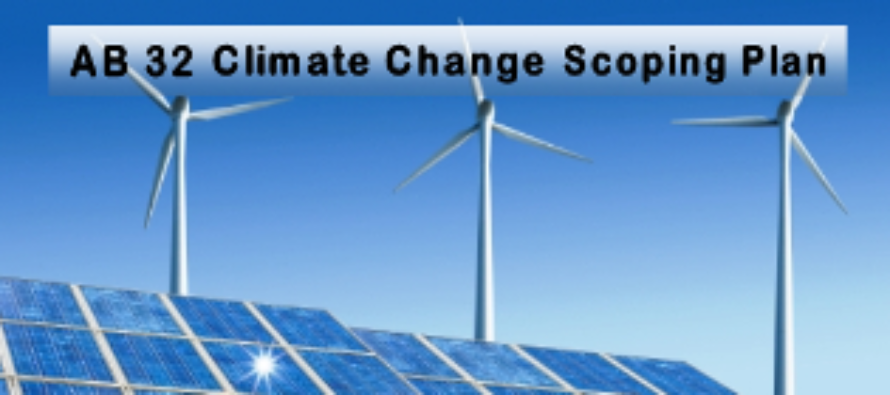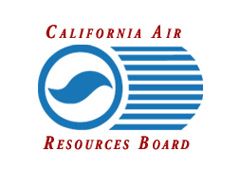CARB draws sharp fire on AB 32 — from the left

 David Roberts — a Grist.org journalist who has an easy command of energy issues that makes his NRDC-style environmentalism easier to take — has written a sharp piece about AB 32. Roberts details what he calls an “avoidable mess” in the implementation of the law by the California Air Resources Board that limits how much environmental good it can do.
David Roberts — a Grist.org journalist who has an easy command of energy issues that makes his NRDC-style environmentalism easier to take — has written a sharp piece about AB 32. Roberts details what he calls an “avoidable mess” in the implementation of the law by the California Air Resources Board that limits how much environmental good it can do.
We hear plenty of CARB critics from libertarian and conservative circles. Here’s what a sharp liberal critic of CARB sounds like:
Now, say a utility in a carbon market wants to reduce its carbon emissions. It could build renewable energy generation, or launch efficiency or demand-response programs, but gosh, that stuff is expensive and difficult. Isn’t there something easier and cheaper? Why yes! Here’s two other things it could do.
One, it could sell its ownership stake in a coal plant and buy a stake in a natural gas plant. Voilà! The net emissions of its power portfolio has declined.
Or two, it could shuffle power contracts away from coal plants to unspecified sources, which are treated as natural gas. (More sinister yet, it could help a coal plant obscure the source of its power, rendering it unspecified.) Again: voilà! For bookkeeping purposes, its emissions have fallen.
See what’s wrong here? In both cases, the utility reduced the emissions for which it is responsible, but real-world emissions did not decline at all. The same amount of dirty energy is still feeding into the western grid. The emissions just got “shuffled” off the California utility’s books.
For obvious reasons, resource shuffling is bad news for carbon markets. It makes carbon emissions into a meaningless shell game, exactly the sort of shenanigans cap-and-trade critics are always warning about.
CA regulators saw problem coming
Liberal lawmakers have long downplayed this potential problem. But Roberts says CARB was aware of it and wrote AB 32 to avoid it — at least in theory:
AB32 contains strong language on leakage, saying that regulations must “minimize leakage” and that emission reductions achieved under the program must be “real, permanent, quantifiable, verifiable, and enforceable by the state board.”
And the initial guidance document written by regulators (which details the mechanics of how AB32 is to be implemented) stated clearly that “resource shuffling is prohibited and is a violation of this article.” In fact, the initial guidance contained a provision that would have forced utility executives to testify under oath that their emission reductions were real and not merely shuffled. Powerful and unambiguous stuff!
 UC Berkeley research fellow Danny Cullenward tells the story of what happened next:
UC Berkeley research fellow Danny Cullenward tells the story of what happened next:
“[Banning resource shuffling outright] proved controversial. In the months leading up to the beginning of the market’s first compliance period, several stakeholders objected to the resource shuffling rules and began agitating for reforms. The first public proposal came from California’s investor-owned utilities, which in September 2012 advocated a series of exemptions to the prohibition on resource shuffling. The following month, [the California Air Resources Board] directed its staff to develop modifications to the resource shuffling regulations, providing 13 fully developed ‘safe harbor’ exemptions to the definition of resource shuffling directly comparable to, if not more permissive than, the Joint Utilities Group proposal. A few weeks later, CARB staff released a new regulatory guidance document that incorporated these safe harbors, almost word for word.”
So the new AB32 regulations now say that resource shuffling is prohibited … except “when the substitution occurs pursuant to the conditions listed in section 95852(b)(2)(A).” Just a little tweak, right? Except 95852(b)(2)(A) contains loopholes wide enough to sneak a coal plant through. (To see for yourself, check out the current regulations, pp. 106-108.)
In other words: California regulators caved.
CARB’s self-reverence may not be deserved
One person’s view of what constitutes caving might well be another person’s reasonable compromise. But it’s still interesting to see a liberal, deeply informed out-of-state journalist — Roberts lives in Seattle — investigate the air board and conclude that the agency’s high opinion of itself isn’t warranted.
David Roberts will find lots of libertarian and conservative Californians probably agree with him on this, starting with Cal Watchdog contributor … Dave Roberts.
Related Articles
Don’t trust Covered California’s latest round of happy talk
While the national media increasingly seem to have figured out that Obamacare is a farce, its California version continues to
Brown Pushes Cap & Trade Pension Grab
JAN. 11, 2012 By WAYNE LUSVARDI Call it pension “entrap and raid” — instead of environmental “cap and trade.” Gov.
High-Speed Rail Has Too Much PR
Anthony Pignataro: How’s this for timing: on the same day that the California High-Speed Rail Authority sends out a press



